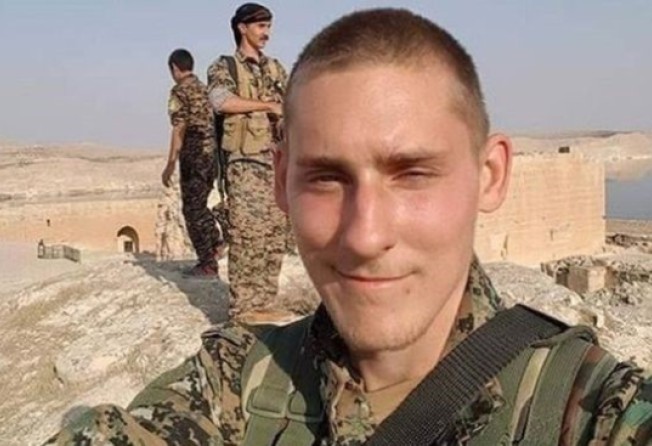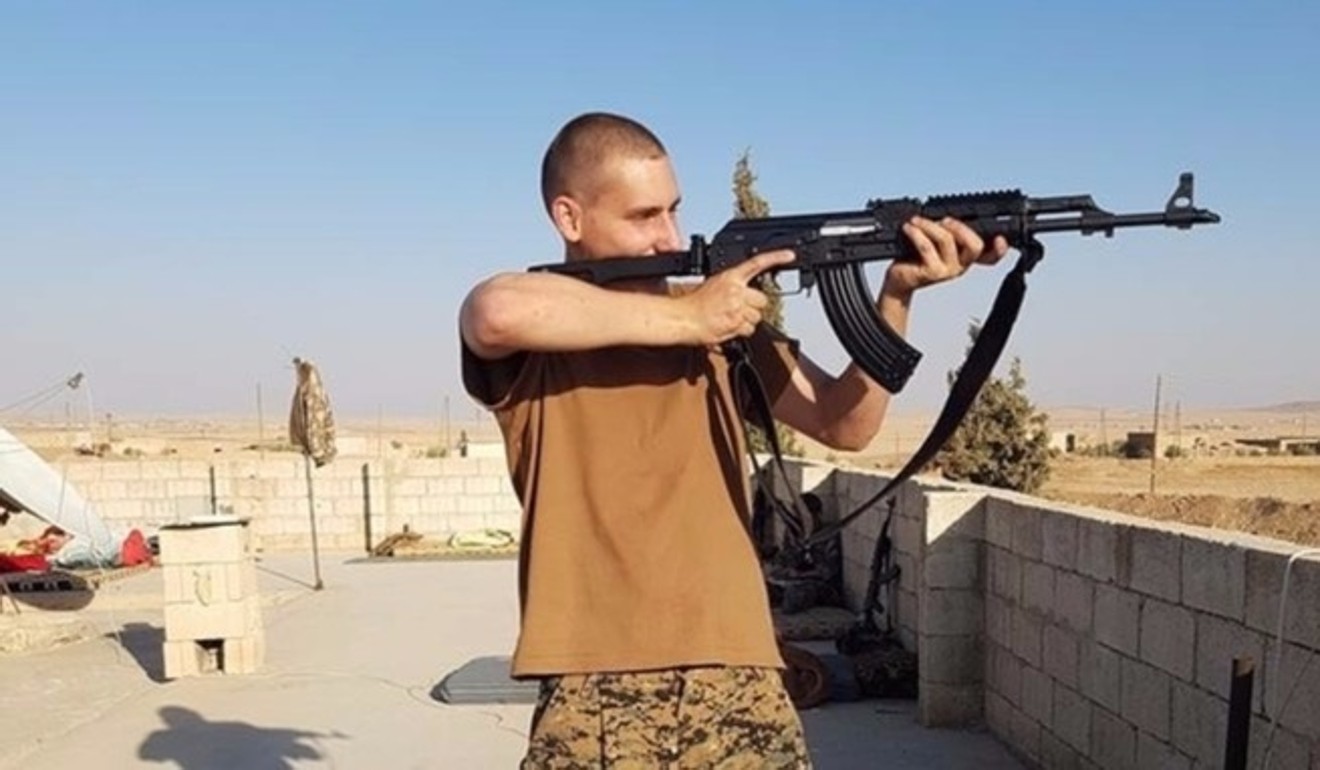Members of the Kurdish community wait for the funeral cortege carrying #RyanLock home to Chichester! SEHID NAMIRIN! pic.twitter.com/yLYPbgpmTc
— Kurdish Solidarity (@Hevallo) February 18, 2017
British fighter Ryan Lock shot himself to avoid capture by Islamic State and died a hero, coroner concludes

A British man who left his comfortable home and job to fight against Islamic State as a volunteer died a hero in December when he turned his weapon on himself after being hopelessly surrounded by enemy troops, a coroner has ruled.
Ryan Lock, 20, a chef from Havant in Hampshire, was badly wounded in the leg during a gun battle in Syria and, realising he was about to be captured, shot himself, the inquest in Portsmouth was told.
Lock’s mother, Catherine, wept as the coroner, David Horsley, refused to record a conclusion of suicide but instead said her son, who had no previous military experience, had sacrificed his life for a cause.
Giving a narrative conclusion, the coroner said: “During a battle with Islamic State Ryan gave his life fighting for a cause to which he had dedicated his all. He was a very brave young man. He died doing something quite clearly he believed passionately in. I think that has to be the memorial for Ryan. We’ve lost a heroic young man.”
It emerged during the inquest that Lock’s family only confirmed he was dead when his father, Jon Plater, found an image of his body being displayed as a “trophy” on an Isis website.
He said they were killing women and children [in Iraq and Syria] and it was a shame that nobody was doing anything about it
His mother, a nurse, described how shortly before leaving for Turkey – telling his family he was going backpacking – he had expressed concern at the loss of life being suffered by the people of Syria.
But she said she had no respect for the People’s Protection Units (YPG), the Kurdish military force fighting in northern Syria, that Lock joined. “If it wasn’t for them my son wouldn’t be dead,” she said. “They got him across the border into Syria. They are taking young people and putting them in combat situations with very little training and, surprise, surprise, parents are losing their children.”
She said she would never understand what had prompted her son to leave his civilian job as a chef on a naval training base to fight with the YPG. “The only person who can explain why he did that is Ryan,” she said.

His mother said he was “quite political”. “A few days before he went we were watching Channel 4News. There was a piece about Iraq and Syria. He said they were killing women and children and it was a shame that nobody was doing anything about it.”
Lock told his mother he was going to Turkey backpacking with some friends and would be back within a few weeks. He tidied out his locker at HMS Collingwood and his bedroom at his mother’s house in Havant and flew from Luton to Istanbul and on to Sulaymaniyah in Iraq.
Via Facebook, Lock confessed he had lied and said he was going to be a chef and medic with the YPG and would return in six months. His mother was horrified but told him: “I’m proud of you. Please stay safe and come home.”
Images Lock posted on Facebook suggested he was not simply a chef or medic. In one he posed with an AK-47 assault rifle, in another with a Glock pistol. He spoke of being trained in the use of night vision goggles and a sniper rifle.
In November, Lock was trapped under rubble when his unit was bombed by Turkish jets. Lock posted a picture of himself with facial injuries, along with the message: “We got hit by Turkish jets in the night ... I’m staying to finish out my six months.”
But Lock’s family lost contact with him at the start of December. Fearing the worst they began to search Isis websites until they found the image of Lock’s body with a gunshot wound to the head. The details of where he died were not given at the inquest but it is understood it was near the city of Raqqa, the group’s de facto capital.
The body was eventually recovered by the YPG and repatriated to Heathrow. About 30 Kurdish people living in Britain gave him a hero’s welcome in February.
Lock’s family was sent a letter from a man called AJ Woodhead who said he had fought alongside their son. The letter said Lock would be remembered as a “true hero” in Kurdistan. It said: “He died as he lived true to himself and true to the very highest standards of soldiering.”
Woodhead said Lock had been injured in the leg but kept firing until he was killed. Examinations of Lock’s body in Iraq and the UK showed he had taken his own life, the inquest was told.
Lock, who was given the nom de guerre Berxwedan Givara, meaning “resistance Guevara”, after Che Guevara, was the third British man to be killed fighting against Isis since the first foreign volunteers arrived in Iraq and Syria in the autumn of 2014.
Dean Evans, 22, a dairy farmer from Reading, Berkshire, died in the city of Manbij in July 2016 and the former Royal Marine Konstandinos Erik Scurfield, 25, from Barnsley, South Yorkshire, died in the northern village of Tel Khuzela in March 2015.